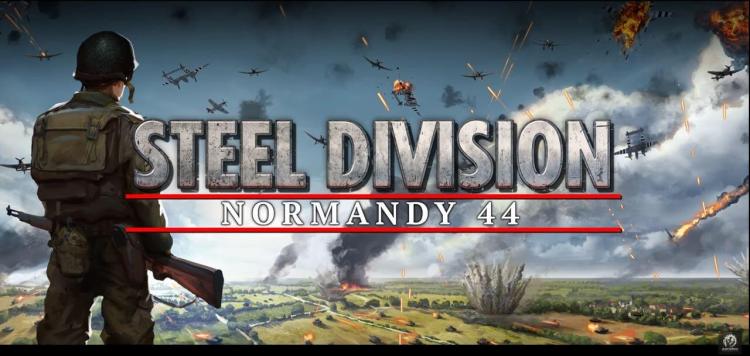When I first started covering Paradox games six years ago, they were a developer of complicated strategy games with much love in their niche (and nowhere else), and a publisher of games of varying genre, tone, and unfortunately, quality. In that time, on the backs of games like Crusader Kings 2, Cities: Skylines, Pillars of Eternity, and Stellaris, Paradox has become an increasingly influential player in the games industry — indeed, arguably one of the most important below the triple-A line of Activision, EA, and Ubisoft.
At their recent PDXCon in Sweden, Paradox unveiled several games and expansions as well as discussing the state of the company. The press in attendance had a whole day to talk about and test most of the games involved — here’s a ranking of the big announcements and games of the show, from best to, well, least best.
1. Paradox the Publisher
At GDC two months ago, Paradox announced Steel Division, from R.U.S.E. and Wargame developers Eugen Systems. It followed that with two big reveals at PDXCon: Battletech from Hairbrained Schemes, creators of Shadowrun Returns; and Surviving Mars from Haemimont Games of Tropico fame.
All three of these games fit Paradox’s goals of depth and replayability, and all three studios seem like they should have been working with Paradox already. When your reaction to three new development studios in quick succession is “wow, what a great get!” it’s hard to call Paradox’s current strategy anything but a rousing success.
June 5th: The AI Audit in NYC
Join us next week in NYC to engage with top executive leaders, delving into strategies for auditing AI models to ensure fairness, optimal performance, and ethical compliance across diverse organizations. Secure your attendance for this exclusive invite-only event.
2. BattleTech
I’d somehow missed the Kickstarter for the resurrection of the BattleTech franchise a couple years ago, so I was mildly surprised to see its sudden appearance at PDXCon (and further surprised to see how wildly successful that Kickstarter was — $2.7 million). I’ve never been into the franchise or mech combat in general, but this game was a hit, at least in my press group.
This one’s still under embargo until press can play the beta, so I can’t tell you that it felt really good to play. Instead I’ll just say that everyone, including people engaging in the franchise for the first time, seemed to be excited about publishing and playing BattleTech.
3. Hearts of Iron IV
Compared to the epic scale of Paradox’s other grand strategy games, Hearts of Iron’s intense focus on World War II can make it feel less necessary than the others. That’s a shame, because it’s a fantastic game, especially at economic choices and land war interfaces. (It’s also sold 500,000 copies, so it still made a splash.)
Its upcoming expansion, Death or Dishonor, was playable for the first time at PDXCon, and it seems to have honed in on exactly what HOI4 needs to do to get even better: It’s fixing the air war interface (and according to the developers, improving the air combat system), and it’s adding more strategic options and alternate history scenarios for mid-sized nations — in this case, Yugoslavia, Czechoslovakia, Romania, and in the most popular decision of the con, Hungary, which now has the option to try to re-create the Austro-Hungarian empire.
This kind of creative alternate history and attention to detail makes it clear that Hearts of Iron 4 is on exactly the right path to be even better than the excellent game it already is
4. Surviving Mars
The biggest new announcement at PDXCon was the recruitment of Haemimont Games to create this survival-strategy game. It was also the only game that press wasn’t able to play, so it’s not quite time to get excited yet.
That said, it has a ton of potential. The art style has a big, bold, throwback optimism that should create a nice ironic pairing with the occasional brutality of a survival game. And the specific premise of marrying science with science fiction on Mars is a can’t-miss premise.
There are a lot of pitfalls to avoid, however, most notably that it kinda sounds a lot like one of gaming’s greatest disasters, Outpost. The scope may also be difficult: How do you maintain the difficulty necessary for a good survival strategy game starting with just drone workers and eventually having a colony with thousands of individual citizens.
But it’s definitely worth keeping an eye on.
5. Steel Division: Normandy ’44
Steel Division has had an early access “beta” open for multiplayer and skirmish maps for several weeks now, So the big remaining question at the con was how strong its single-player campaign will be. Happily, that’s what Paradox showed off at PDXCon, and happily, it seems clever and better than my fear of the campaign simply being slightly contextualized skirmish modes.
I don’t think that the three relatively short campaigns are sufficient for Steel Division to be a great single-player game, but the campaign doesn’t hold it back from achieving its potential as a deep, accessible wargame, which is a win.
6. Cities: Skylines
Cities: Skylines has sold 3.5 million copies in the two years since its release. (Talk about filling the void left by the disaster of 2012’s SimCity). Its expansions haven’t made too much of a splash, adding nightlife, weather, and disasters. Mass Transit seems an unexciting addition at a glance, but given how much of Cities’ challenge hinges on being able to deal with traffic, it seems clear that this could be the best expansion yet.
The only reason it’s not higher on this list is that it’s already been released, and press actually had access to it right before PDXCon. The reviews are strong, though, and the addition of a monorail makes it easy to remember. Sing it with me!

7. Paradox Development Studio
The heart of Paradox, and indeed what many people think of when they hear the name, are the games from the Paradox Development Studio. PDS is responsible for the company’s famous grand strategy games, of which there are four currently being continuously worked on: Crusader Kings 2, Europa Universalis 4, Stellaris, and Hearts of Iron 4.
So for many Paradox fans, a PDXCon felt like the time to announce something new. Perhaps a sequel to one of their older, lapsed games like Victoria 2 or Rome, which also represent periods of history not currently covered by their other games, which go from 767-1821 and 1936-1950, or a sequel to the much-loved but now five-year-old Crusader Kings 2. Instead, the only game release announced was a small expansion for EU4 called Third Rome (see below).
But despite crushing the dreams of everyone hoping for Victoria 3 to bridge the historical gap in PDS games, the studio still managed to make a big splash with a different kind of announcement. Jon Shafer, the designer of Civilization 5, has joined Paradox, and he’s working on a fifth, as-yet-unrevealed game that he says fits in what people expect from Paradox. Shafer has one of the brightest strategic development minds in the industry, and this new alliance seems likely to bear creative fruit.
8. Europa Universalis 4
My two favorite regions to play in EU4 are Russia and Sweden. The Third Rome “Immersion Pack” focuses on Russia, updating the map, aesthetics, and importantly, religious and cultural mechanics of the region. That’s fantastic for me, as a Russia player! It’s just hard to imagine too many others being excited for it.
Designer Johan Andersson, describing the package’s creation, explained that it was largely the work of him and one other person, so this is probably a small but efficient release from an economic perspective. But as the only PDS product announced, it’s a bit underwhelming.
8. Prison Architect: Mobile
I’m sure Prison Architect is a fascinating game. But there’s something distinctly uncomfortable about a European-made game taking the idea of American-style mass incarceration and turning it into something goofy, fun, and for profit. So I cannot reconcile my understanding of the American prison systems as one of the greatest purveyors of injustice in the world with this trailer. At all.
That said, I did give Prison Architect: Mobile a try, and fitting the interface for a complex strategy on a touchscreen was quite impressive. I hope to try it on a game I actually want to play at some point.
10. Tyranny
If you played Tyranny, Obsidian’s fascinating throwback-RPG released last November, you might have noticed that there were a few spots that seemed to scream that an expansion pack would fit right in. Unfortunately, six months after release, not only was there no expansion announced, but Obsidian was nowhere to be seen at PDXCon.
Instead, what we got a few days later were a spate of articles trying to figure out what had gone wrong with Tyranny. The game itself was quite good, and it reviewed well, too, after all, so a few different options were cited: a crowded November release date, the game’s marketing as “what if evil won?”, or a limit on the market for throwback RPGs. For my part, I blame the first two: mid-November is a terrible time to try to stand out, certainly, but the “what if evil won?” marketing was both poorly timed after a contentious election and didn’t make clear Tyranny’s real strength: arguably the deepest of the faction/character-based storytelling Obsidian’s been experimenting with for over a decade.
Regardless, the lack of Tyranny and Obsidian at PDXCon was probably the show’s only purely sour note.


